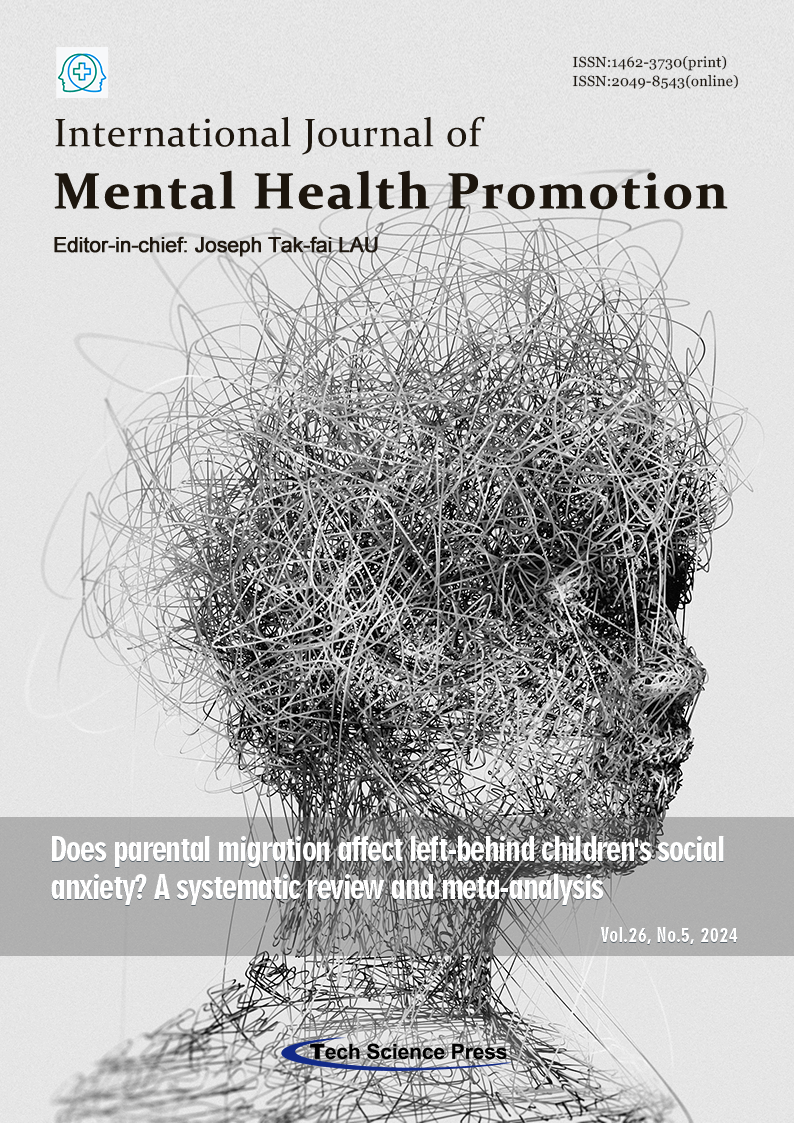
With the acceleration of urbanization in China, there has been a significant influx of rural laborers into cities for reasons of economy and living conditions, in many cases, the children of migrant workers are unable to accompany their parents to cities and are left behind in the countryside. Disruption of family functioning and family relationships due to prolonged parental absence has serious adverse effects on the emotions and behaviors of left-behind children. Studies have confirmed that adolescents who are left behind are more likely to suffer from emotionally traumatic experiences that lead to social anxiety in children. As a chronic anxiety condition, social anxiety is not only persistent but also increases the risk of other serious mental health problems, such as moderate-to-severe insomnia, suicide attempts, substance abuse, depression and behavioral inhibition. Mental health problems of left-behind children are becoming more serious, which has aroused great attention and extensive discussion in academic circles. Although the current literature related to social anxiety in left-behind children is rich, there are a series of problems, such as a lack of representativeness and consistency, and inconsistent findings. In particular, a consistent summary of which factors contribute to social anxiety in left-behind children is lacking. Therefore, this study collated and analyzed the research literature on social anxiety in left-behind children, with the aim of obtaining more accurate data on social anxiety scores and evaluating the social anxiety status of Chinese left-behind children with greater objectivity and timeliness. This study is expected to provide a foundation for improving mental health in left-behind children.
View this paper